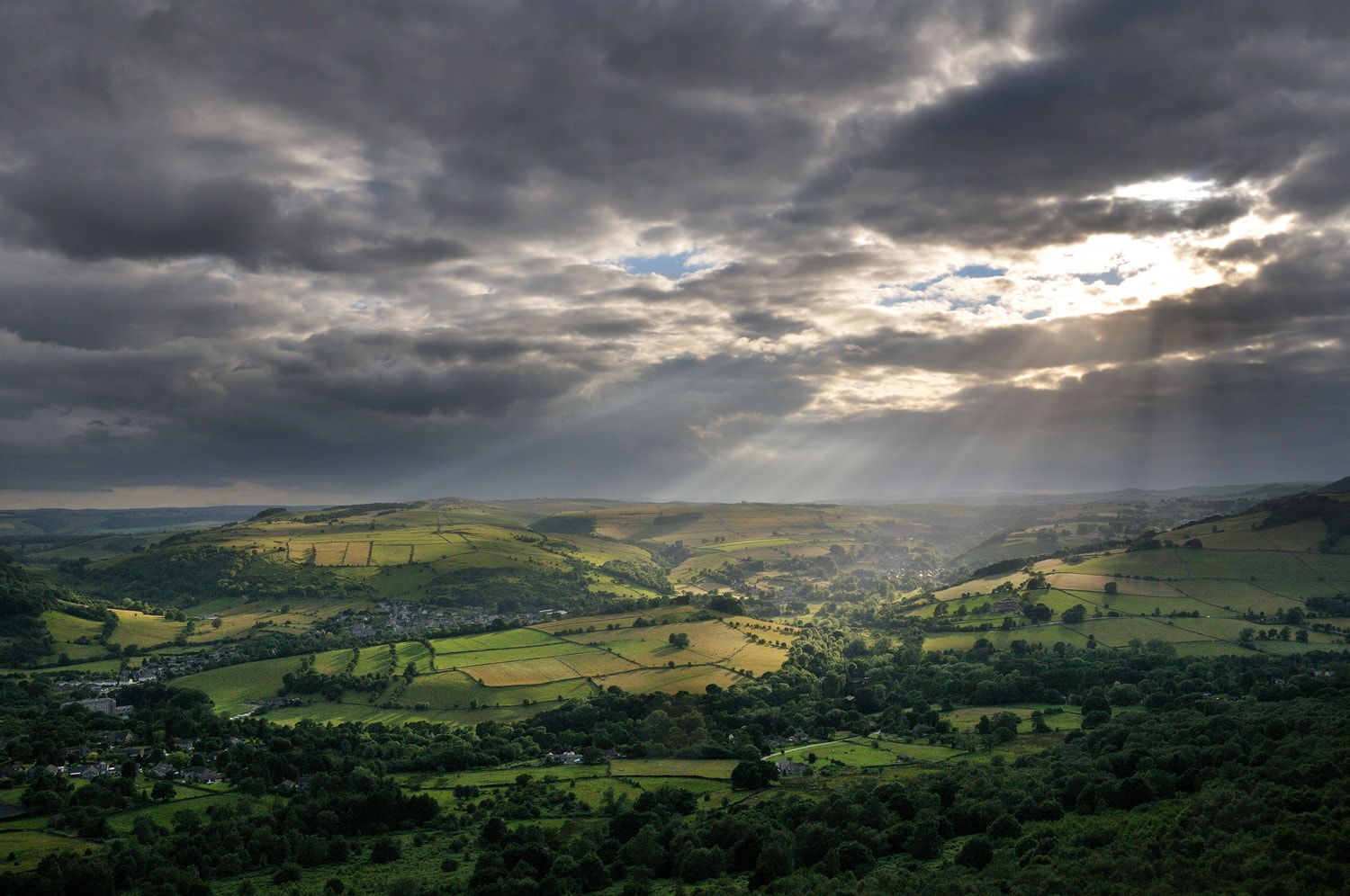Residents' survey

In October 2012, the Peak District National Park Authority organised a survey of national park residents. The survey asked 4,700 randomly selected households a range of questions about the national park.
The survey is extremely valuable for the Authority as it provides some clear messages about areas where residents are happy with services, but also tells us what they would like us to do more of.
Thank you to all the national park residents who responded to the survey. The full survey results can be seen at www.peakdistrict.gov.uk/microsites/sopr/communities/residentsurvey
1. Communication with the Peak District National Park Authority
What you told us...
Parklife magazine is a frequently mentioned source of information about the work of the Authority. Traditional sources such as leaflets and local media are still popular.
However, the growth in popularity of the website, particularly with younger residents (31% of 25–44 year olds), suggests there is untapped potential for engaging younger audiences by improving our web presence.
Although people are not always sure of how to communicate with the Authority, when you do contact us, you feel more confident than in 2009 that we listen and respond to your opinions.
What we are doing...
The Authority recognises the way in which people want to be communicated with is changing. We continue to improve the ways that people can both contact the Authority and get involved in decisions. For example, we are improving our website to make it easier for customers to use, changing the planning duty officer system, and sign-posting communities to a range of sources of help through our village officer. We also continue to promote the single telephone point of contact.
We will review our key communication activity to ensure it: maximises any income opportunities, reflects good value for money, and meets both our needs and those of the people who receive it. Generally, in the future this will mean the Authority will use a mixture of traditional (printed leaflets and local media) and new media (mobile website and social media) communications.
Following recent achievement of the Customer Excellence Standard, we will continue to improve our service to customers by implementing its recommendations.
A Youth Forum is being set up to better understand the needs of younger residents, aged between 16 and 24, which the Authority can consult and seek advice from on an on-going basis.
2. Experience and perception of the planning process
What you told us...
Levels of satisfaction with the planning service are higher than levels of confidence in planning decision-making of the Authority.
A larger proportion of responses expressed satisfaction (34%) rather than dissatisfaction (22%) with their experience of the planning service. More residents agree than disagree that they were given the right advice, they were kept informed, and that their case was handled in a timely, fair and transparent way.
However, there is room for improvement, particularly in increasing understanding of why decisions are made. Analysis of comments shows residents perceive a lack of consistency in decision making by the Authority.
What we are doing...
A Planning Improvement Project in 2012 identified a number of actions which are being implemented in 2013-14. We have committed to a greater level of contact and communication with all our stakeholders. Planning Bulletins are being produced and sent to agents and Parish Councils. In addition to this, more frequent meetings are being held with those agents who are most active within the national park. This will allow more effective two way communication.
Improvements to the effectiveness and performance of the Authority's Monitoring and Enforcement team have been introduced. The need for effective and consistent enforcement of planning control is as important as consistent decision making on planning applications. Measures include strengthening the team, producing a Local Enforcement Plan, being more pro-active on high priority cases and re-introducing more regular site inspections of approved developments.
The need for greater transparency in decision-making and the need to communicate the reasons for decisions more effectively have been recognised by the Authority. Changes which have been implemented recently include the replacement of the duty officer system with a planning advice service. This aims to provide a more consistent level of advice from the initial enquiry through to the final decision, with initial enquiry being allocated to the appropriate planning officer at the outset. The planning officer will normally follow the proposal through to an application and decision, and allow for a greater level of consistency and accountability in decision-making.
3. Volunteering
What you told us...
Results of the survey indicate an untapped potential from residents to get involved with volunteering activity which benefits the national park, particularly amongst younger residents.
62% of residents volunteer compared with 23% nationally. These results show that 'Big Society' already exists within some communities.
The most popular volunteer conservation activities are learning about the national park, surveying buildings and archaeological sites.
What we are doing...
The Authority already benefits from high levels of volunteering, through a range of opportunities and we will continue to offer high-quality volunteering opportunities, and work with partners to focus on opportunities to learn about and contribute to the national park through volunteering.
We will focus on ensuring good levels of support for volunteers and offer a rewarding experience whilst, at the same time, providing meaningful experiences which increases their knowledge of the national park. We will explore new opportunities to volunteer, for example, on campaign topics aimed at younger residents and families. We will also work with local residents to spread understanding of the national park to new audiences.
4. Recreation and tourism
What you told us...
Walking and cycling are the most popular outdoor activities in the national park. Cycling is particularly popular with younger residents. It may be that issues of traffic and steep hills deter older residents from cycling.
Generally, it seems that residents are positive about tourism in the national park. For example, 8 out of 10 residents feel that local businesses and employment is stimulated by visitor spend. However, a minority have concerns about benefits for local residents and the impact on the national park.
What we are doing...
The Authority is working to increase the connectivity of 'easy going' traffic-free trails across the Peak District National Park to make cycling safe, easy and convenient for more people to enjoy. Awareness-raising campaigns such as the Pedal Peak District website, aimed at new or returning cyclists, continue to be an important part of promoting recreational opportunities for all.
We will continue to encourage responsible tourism, including responding to the minority of situations where negative impacts are felt by communities. However, given that for the majority the benefits of tourism outweigh the negative impacts on the national park and its residents, we will continue to promote a greater understanding of the wider benefits to the local community of the visitor economy.
5. Sustainability
What you told us...
There has been a large rise in popularity of ethical products. More than 9 out of 10 (95%) residents claim to have bought or to buy ethical products, such as organic or free-range food, fairtrade products or green holidays, and just over 1in 3residents (36%) make these types of purchases more regularly. Take-up of renewable and green energy products was less popular, with less than 10% of residents claiming to have sourced or installed such products. Younger people and households with children were more likely to use green and renewable energy.
Almost 4 out of 5 residents who responded use public transport to some extent. Older residents use public transport more frequently than younger residents.
What we are doing...
The Authority will continue to support and encourage green businesses which have low carbon footprints, are less dependent on haulage, and promote the natural advantages of the national park area.
The recently adopted Supplementary Planning Document for Climate Change and Sustainable Buildings facilitates the upgrade of existing buildings to improve energy efficiency and green credentials.
The Authority continues to work with public transport operators, other local authorities and partners to promote public transport and encourage residents and visitors to travel more sustainably in the national park, making the best use of the public transport options that exist in the Peak District.
6. Special qualities
What you told us...
8 out of 10 respondents felt the 'specialness' of the national park derived from the distinctive character and attractiveness of its villages, and 6 out of 10 felt that local customs and traditions were an important ingredient in defining its character.
Since the last survey in 2009, there has been a significant increase in the number of people who value how clean and pollution free the national park area is. There has also been an increased recognition of the sense of remoteness and wildness of the park. The national park's sense of 'peace and tranquillity' is now the third most recognised measure of 'specialness', whereas in 2009 it was only the sixth.
What we are doing...
When comparing the 2009 and 2012 surveys, several changes are evident in relation to perceptions of what makes the area special place. The survey demonstrates that residents increasingly value the cleanliness, and sense of peacefulness and quiet that living in the national park offers.
From the survey results it is evident that the value which the National Park Authority places on tranquillity, local distinctiveness and character is shared by residents, and we will continue to work with residents to protect what is special about the natural and built environment, its customs and its heritage.
7. Business in the national park
What you told us...
6 out of 10 respondents felt that the national park is definitely or probably a good place to do business, and 3 out of 10 could not say. 1 in 10 felt that the national park was NOT a good place to do business.
What we are doing...
We are working with Business Peak District and local authorities to enable better broadband provision in the future, as well as supporting businesses to benefit from the Peak District brand and develop network events for businesses.
We aim to carry out a business survey to better understand issues affecting businesses in the Peak District to inform future work.

